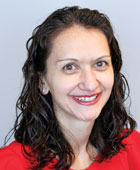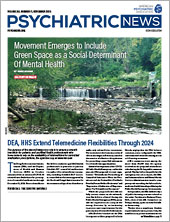As a Jewish immigrant to the United States whose family fled religious persecution, it’s difficult to formulate a cogent response to the horrific events now occurring in Israel and Palestine. The slow and complicated process and the confusing and arduous journey from Latvia in the Soviet Union to the United States is still a subject I speak about often as I try to teach my children to understand why people behave in certain ways.
The events that are still unfolding have triggered thoughts of “this could have been me,” as I envision myself both as the person gruesomely attacked for being a certain religion and as the fleeing Palestinian civilian trapped in a horrific scenario beyond my control. Integrating one’s personal feelings can make patient care even more complex. Many of my Muslim and Jewish patients are suffering. So are many others with their own past traumas.
As physicians, we are trained to be evidence-based and piece together data points to develop a diagnosis and treatment plan for our patients. As psychiatrists specifically, we are taught to pay attention to every detail and nuance of patients’ narratives as we try to make sense of their life story and help to alleviate their suffering. Sadly, I hear of patients’ traumas and darkest moments daily.
For many people, not just those halfway across the world, life cannot move on. Many of us have deep ties to the region, to our faith, and to our history. For those who tragically lost loved ones, they may never move on to feeling fully whole.
One of my patients, who is developmentally immature and often struggles to have insight, came in a few days after the initial attacks with a somber affect. “How could babies be taken? ... They are just babies.” It was in this moment that I was struck with why I felt ill equipped to manage this.
In our work as psychiatrists, patients expect our help to explore different paths forward to come up with solutions that will lead to more fulfilling lives. Yet, in this case, I was speechless. It took a few moments to recognize that this patient was looking to me and our work together to find the ability to process what had happened. Even though the patient was not directly affected, the impact was still massive. Together, we ploughed ahead toward making some sense of these tragic deaths, a difficult task for both patient and doctor. Personally, I came away with concrete steps that I believe can be effective, in both my professional and personal lives.
The attacks of October 7 were sudden, unexpected, and gruesome, and as such, Maslow’s Hierarchy of Needs was immediately called into question. Without securing food and safety with certainty, one cannot move on to higher needs like love, esteem, and self-actualization.
Erik Erikson said, “The richest and fullest lives attempt to achieve an inner balance between three realms: work, love, and play.” Living among chaos and terror doesn’t afford one the ability to do any of these things.
For those of us out of harm’s way, we need to acknowledge that the events that occurred were derived from complex situations that have evolved over time. These are beyond the control of one person, and we must accept that there are no simple answers. Instead, we should focus on that which we can directly control.
We can be kind and respectful of other people’s needs. We can shift our attitudes and perspectives about where our priorities lie. We can talk through our feelings with those we love. And perhaps more than anything, we can be grateful for what we have in our everyday lives, while still showing empathy toward those in the direct path of danger. Appreciating the positive will in no way devalue or de-emphasize the severity of this tragedy.
Until we focus on our own emotional well-being, we cannot effectively impart change in the world around us. Only then can we take this opportunity to consider how we can give back—both within our own community and globally. For those of us not in immediate physical and emotional crisis, peace and hope can be worked on, both internally and externally.
While we always strive to help our patients have a clearer voice and path forward that’s in line with their integrity and life goals, right now this everyday task seems more important than ever. ■

